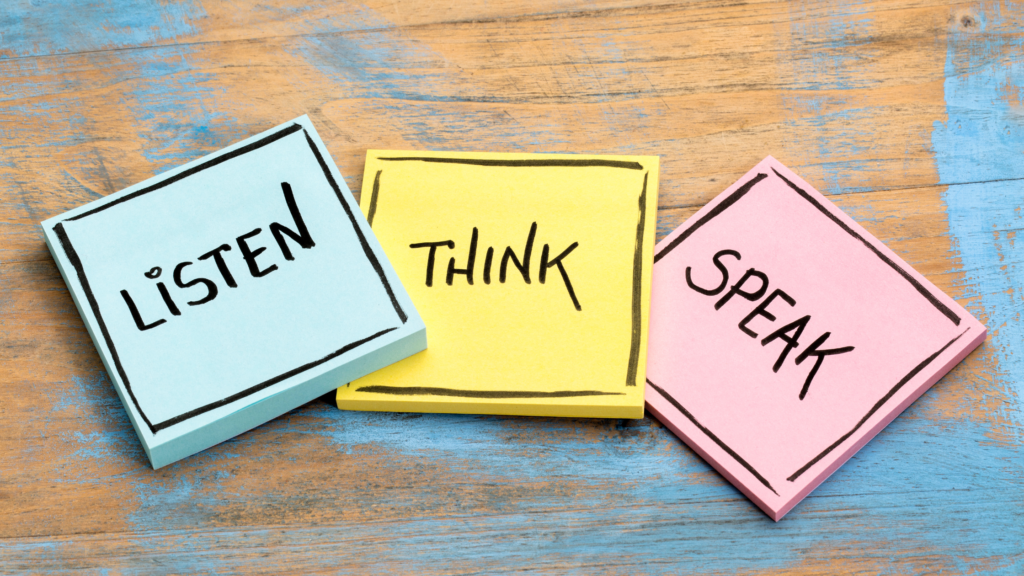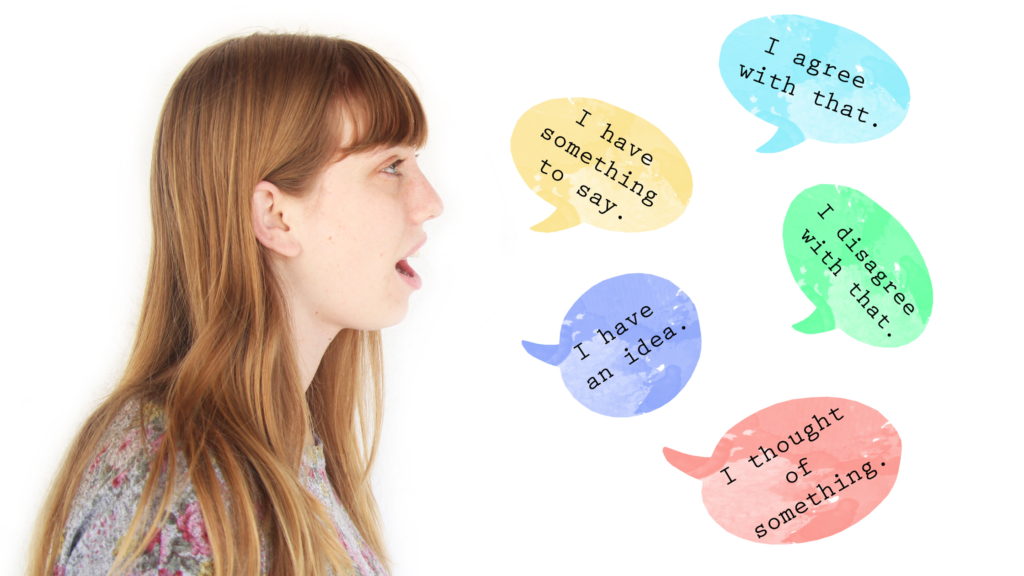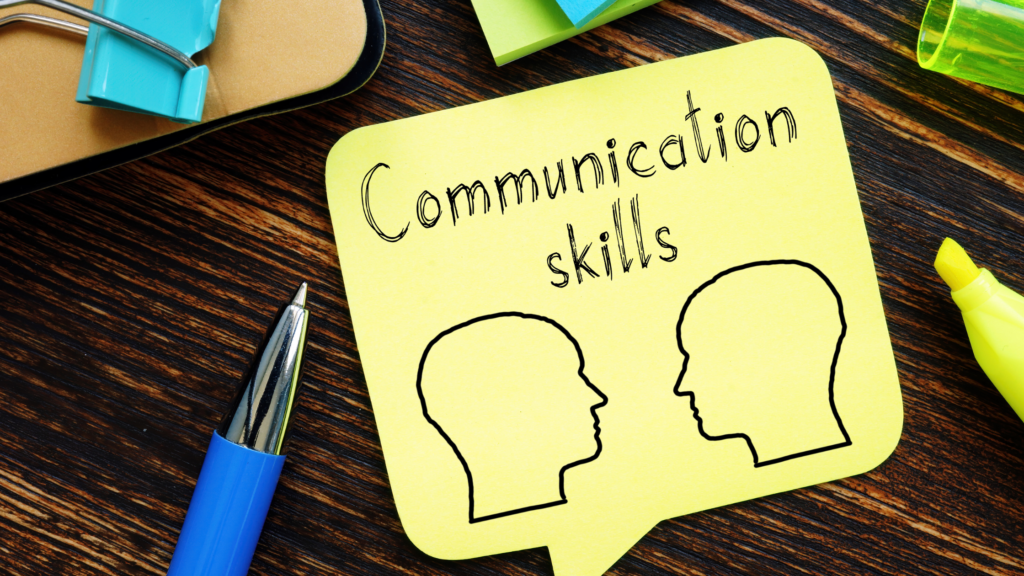By Ofuns Okwechime
Communication skills are essential for any young adult to thrive in a challenging world. From speaking, listening, tone of voice, and body language, to name a few skills, there are vital ways to ensure that the exact message is transmitted when we communicate to make it effective.
In this article, you will learn about what communication is, types of communication skills, and how to improve communication skills, including what type of communication is appropriate in different scenarios with examples.

What is communication?
Communication is the means of sending and receiving information through verbal and non verbal means.
Types Of Communication Skills:
Listening
To listen means to pay attention to and respond to sound. There are two types of listening skills. Active and passive listening. Active listening means engaging closely to what the speaker is saying during conversations.
During “Active Listening” you can show actions like nodding, paraphrasing with open-ended questions and summarising show active listening. Passive listening involves one-way communication with only one person speaking.
“Passive Listening” is a communication skill where you listen to someone without providing much verbal or non-verbal feedback. It involves being a silent and attentive listener, absorbing information without necessarily giving extensive responses.
Passive listening is valuable where the speaker primarily needs to express themselves or share their thoughts, and active participation or feedback isn’t required.
Body Language
Body language is a nonverbal means of communication. Body language includes gestures, facial expressions and mannerisms. Understanding what each type of body language means affects your message. Some examples of these include:
- Eye Contact: Eye contact is a powerful form of non-verbal communication. Maintaining appropriate eye contact can convey confidence, interest, and attentiveness. For example, during a job interview, making consistent but not overly intense eye contact with the interviewer demonstrates your engagement and sincerity.
- Crossed Arms: Crossing your arms can often convey defensiveness or a closed-off attitude. For instance, if you’re in a team meeting and cross your arms while a colleague presents an idea, it might be interpreted as a sign of disagreement. Be aware of how this body language can affect interpersonal interactions.
- Smiling: A genuine smile is a sign of happiness and friendliness. When you smile, it can make you appear approachable and open. For example, when meeting new people at a social event, a warm smile can help break the ice and create a positive first impression.

Speaking
Speaking as a communication skill for young adults is talking and expressing yourself to others. It’s about using words clearly and effectively to share your thoughts, feelings, and ideas.
Good speaking skills help you be understood, make friends, succeed in school, and do well in jobs. When speaking, to ensure effective communication note the following:
- Clarity: Speak clearly and enunciate your words. Avoid mumbling or speaking too fast, which makes it difficult for others to understand you. Articulate your words to convey your message accurately.
- Tone and Pitch: Your tone of voice and pitch can convey information beyond words. Be aware of the voice tone you are using – it should match the context. For example, use an enthusiastic tone when discussing something you’re passionate about, and a more empathetic tone when consoling a friend.
- Volume: Adjust your speaking volume to the situation. Speaking too loudly in a quiet setting can be disruptive, while speaking too softly in a noisy environment may lead to misunderstandings. Find the right volume balance.
- Pauses: Use pauses strategically. Pausing at appropriate moments can add emphasis and clarity to your speech. It also allows your listeners to digest what you’re saying. For instance, pause before delivering an important point.
- Body Language: Your body language complements your speech. Maintain an open and confident posture, use gestures when necessary, and make eye contact to engage your audience. Your non-verbal cues should align with what you’re saying.
By paying attention to these aspects while speaking, you can enhance your ability to convey your message effectively and ensure better understanding by your listeners.
Emotional Intelligence
Emotional intelligence, often referred to as EQ, is the ability to understand, manage, and effectively use your emotions and recognize and respond to the emotions of others.
When learning how to communicate, emotional intelligence is a crucial life skill for young adults because it helps in building healthier relationships, managing stress, and making better decisions.
For Example: Imagine you’re a young adult in your first year of college, and you have a roommate struggling with homesickness and feeling overwhelmed by coursework.
Your emotional intelligence comes into play when you notice their emotional state. Instead of ignoring them or downplaying their feelings, you decide to approach them with empathy and understanding.
You might say, “Hey, I’ve noticed that you’ve been feeling down lately, and I get how overwhelming college life can be. When I first got here, I felt the same way. If you ever want to talk or need some help with your assignments, I’m here for you.”
In this scenario, your emotional intelligence allows you to recognize your roommate’s emotions, empathize with their situation, and offer support. By doing so, you’re not only building a stronger bond with your roommate but also creating a more positive and supportive living environment.
Negotiating
Negotiating is a vital communication skill that involves a structured and strategic conversation or discussion between two or more parties to reach an agreement or compromise. It’s the art of finding common ground and resolving differences through effective communication.
Negotiating is a valuable skill for young adults in various aspects of life, including business, personal relationships, and conflict resolution. It involves finding common ground, reaching agreements, and building positive outcomes through effective and collaborative communication.
Written Communication Skills
An aspect of nonverbal communication and written communication skills for young adults involves the ability to convey information, thoughts, and ideas effectively through written means.
It is essential in various aspects of life, including academics, professional settings, personal relationships, and online interactions. Here are some examples below.
Academic Success: Writing clear and well-structured essays or reports is crucial for academic achievement. Young adults need this skill to excel in school or university. A well-structured essay on a historical topic demonstrates knowledge and good written communication skills.
Professional Communication: In the workplace, emails, reports, and memos are common forms of written communication. Young adults must be able to compose professional and error-free messages to colleagues and supervisors. For instance, writing a concise and coherent email to request information from a colleague is crucial for efficient teamwork.
Job Applications: A well-crafted resume, CV and cover letter can significantly impact a young adult’s job prospects. Effective written communication on these documents can help them stand out in a competitive job market. An impressive cover letter can explain why they are the right fit for a position.
Effective Online Presence: In the digital age, young adults often express themselves and connect with others through social media, blogs, or personal websites. Being able to write engaging and clear content is essential to convey their thoughts, build an online brand, or share information effectively.
Personal Relationships: Written communication is essential for maintaining personal relationships. When sending heartfelt letters, birthday cards, or even text messages, the ability to express emotions and stay connected through writing is valuable.

10 Ways To Improve Communication Skills
- Keep your audience in mind- Are you communicating formally or informally?
- Keep it brief- Avoid using more words than are necessary
- Prepare ahead of time
- Be engaging
- Make sure you respond
- Manage your emotions
- Practice public speaking
- Check for errors in written content
- Observing yourself
- Ask questions to avoid making assumptions

In conclusion
Learning how to communicate is an essential life skill for young adults. It encompasses listening and speaking to written communication and emotional intelligence. These skills are crucial for success academically, in professional settings, in personal relationships, and even in online interactions.
Being a good communicator enables you to convey thoughts, understand others, and build positive connections in various aspects of your life. By honing these skills and following the ten tips for improvement, young adults can navigate the challenges of adulthood with confidence and build a foundation for a successful and fulfilling future.
Whether it’s in a job interview, academic pursuit, personal relationship, or a professional setting, learning how to effective communicate is the key to achieving their goals and making a positive impact.
Are you a young adult ready to unlock the power of how to communicate effectively? It’s time to take action and sharpen your communication skills. Start by practicing active listening, honing your speaking abilities, and mastering the art of written communication. Let’s embark on this journey together – work on your communication skills and pave the way to a future filled with success and meaningful connections. Start today and become a proficient and influential communicator.”
